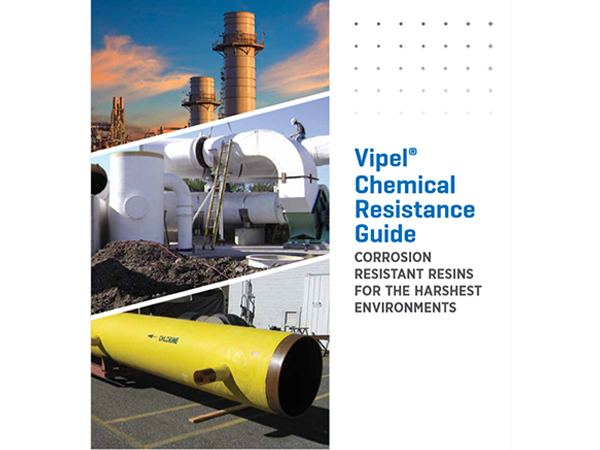
-
 Afrikaans
Afrikaans -
 Albanian
Albanian -
 Amharic
Amharic -
 Arabic
Arabic -
 Armenian
Armenian -
 Azerbaijani
Azerbaijani -
 Basque
Basque -
 Belarusian
Belarusian -
 Bengali
Bengali -
 Bosnian
Bosnian -
 Bulgarian
Bulgarian -
 Catalan
Catalan -
 Cebuano
Cebuano -
 China
China -
 China (Taiwan)
China (Taiwan) -
 Corsican
Corsican -
 Croatian
Croatian -
 Czech
Czech -
 Danish
Danish -
 Dutch
Dutch -
 English
English -
 Esperanto
Esperanto -
 Estonian
Estonian -
 Finnish
Finnish -
 French
French -
 Frisian
Frisian -
 Galician
Galician -
 Georgian
Georgian -
 German
German -
 Greek
Greek -
 Gujarati
Gujarati -
 Haitian Creole
Haitian Creole -
 hausa
hausa -
 hawaiian
hawaiian -
 Hebrew
Hebrew -
 Hindi
Hindi -
 Miao
Miao -
 Hungarian
Hungarian -
 Icelandic
Icelandic -
 igbo
igbo -
 Indonesian
Indonesian -
 irish
irish -
 Italian
Italian -
 Japanese
Japanese -
 Javanese
Javanese -
 Kannada
Kannada -
 kazakh
kazakh -
 Khmer
Khmer -
 Rwandese
Rwandese -
 Korean
Korean -
 Kurdish
Kurdish -
 Kyrgyz
Kyrgyz -
 Lao
Lao -
 Latin
Latin -
 Latvian
Latvian -
 Lithuanian
Lithuanian -
 Luxembourgish
Luxembourgish -
 Macedonian
Macedonian -
 Malgashi
Malgashi -
 Malay
Malay -
 Malayalam
Malayalam -
 Maltese
Maltese -
 Maori
Maori -
 Marathi
Marathi -
 Mongolian
Mongolian -
 Myanmar
Myanmar -
 Nepali
Nepali -
 Norwegian
Norwegian -
 Norwegian
Norwegian -
 Occitan
Occitan -
 Pashto
Pashto -
 Persian
Persian -
 Polish
Polish -
 Portuguese
Portuguese -
 Punjabi
Punjabi -
 Romanian
Romanian -
 Russian
Russian -
 Samoan
Samoan -
 Scottish Gaelic
Scottish Gaelic -
 Serbian
Serbian -
 Sesotho
Sesotho -
 Shona
Shona -
 Sindhi
Sindhi -
 Sinhala
Sinhala -
 Slovak
Slovak -
 Slovenian
Slovenian -
 Somali
Somali -
 Spanish
Spanish -
 Sundanese
Sundanese -
 Swahili
Swahili -
 Swedish
Swedish -
 Tagalog
Tagalog -
 Tajik
Tajik -
 Tamil
Tamil -
 Tatar
Tatar -
 Telugu
Telugu -
 Thai
Thai -
 Turkish
Turkish -
 Turkmen
Turkmen -
 Ukrainian
Ukrainian -
 Urdu
Urdu -
 Uighur
Uighur -
 Uzbek
Uzbek -
 Vietnamese
Vietnamese -
 Welsh
Welsh -
 Bantu
Bantu -
 Yiddish
Yiddish -
 Yoruba
Yoruba -
 Zulu
Zulu
fiberglass for steel smelting plant.
Fiberglass Applications in Steel Smelting Plants Enhancing Efficiency and Safety
In the steel industry, the smelting process is critical, transforming raw materials into durable steel products. However, this process is often accompanied by high temperatures, corrosive environments, and the potential for accidents. To mitigate these challenges, the incorporation of advanced materials like fiberglass has emerged as a pivotal innovation in steel smelting plants. This article delves into the role of fiberglass in enhancing efficiency, safety, and sustainability in steel production.
The Need for Advanced Materials
Steel smelting involves the use of furnaces that operate at extreme temperatures, typically exceeding 1,500 degrees Celsius. These harsh conditions can wreak havoc on traditional materials used in construction and equipment, leading to rapid wear and tear. To counteract these challenges, industries have been exploring alternative materials that can withstand high temperatures and resist corrosion. Fiberglass, composed of fine glass fibers woven into a resin matrix, offers a lightweight yet incredibly strong solution.
Advantages of Fiberglass
1. High Heat Resistance One of the most significant benefits of fiberglass is its ability to withstand extreme temperatures without compromising structural integrity. Unlike metal, which can lose strength and become deformed at high temperatures, fiberglass can maintain its properties, ensuring the longevity of equipment and structures within the smelting plant.
2. Corrosion Resistance The smelting process involves various chemicals and substances that can corrode traditional materials. Fiberglass, on the other hand, is inherently resistant to many acids and alkalis, making it an ideal choice for storage tanks, pipes, and structural components that come into contact with corrosive substances.
3. Lightweight and Strong The lightweight nature of fiberglass facilitates easier handling and installation. This characteristic not only reduces labor costs but also allows for the construction of larger structures without the need for massive support systems. Additionally, fiberglass maintains excellent tensile strength, ensuring reliability even under demanding conditions.
4. Insulation Properties Fiberglass exhibits exceptional thermal insulation properties, which can significantly reduce heat loss in smelting operations. By optimizing energy use, plants can enhance overall efficiency, leading to lower operational costs and reduced emissions.
fiberglass for steel smelting plant.

Safety Enhancements
Safety is paramount in steel smelting plants. The combination of high temperatures and potential chemical exposure poses significant risks to workers. Fiberglass contributes to a safer working environment in several ways
1. Non-Conductive Nature Being an electrical insulator, fiberglass reduces the risk of electrical hazards often present in industrial settings. This property helps protect workers and equipment, creating a safer operational environment.
2. Fire Resistance While fiberglass itself can burn under extreme conditions, certain formulations are designed to be flame-retardant. This characteristic can help slow down the spread of fire, providing critical response time in case of an emergency.
3. Reduced Weight and Structural Integrity The lightweight nature of fiberglass materials helps minimize the risk of structural collapse during the operation of heavy machinery and equipment. This aspect is crucial in maintaining worker safety and preventing catastrophic failures.
Environmental Impact
As the steel industry seeks to reduce its environmental footprint, the use of fiberglass presents an opportunity to enhance sustainability. The durability and longevity of fiberglass components lead to less frequent replacements, reducing waste. Furthermore, the energy savings from improved insulation and efficiency contribute to lower carbon emissions, aligning with global sustainability goals.
Conclusion
In conclusion, the integration of fiberglass into steel smelting plants signifies a transformative shift in material science application within the industry. Its exceptional heat resistance, corrosion resistance, lightweight nature, and safety benefits collectively contribute to improved operational efficiency and worker safety. As the steel industry continues to navigate challenges related to performance and sustainability, fiberglass stands out as a vital material in enabling a safer, more efficient, and environmentally responsible manufacturing process. Embracing such innovative materials will be essential for the future of steel production, ultimately supporting the industry's evolution toward a more sustainable and resilient future.









